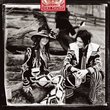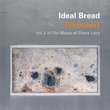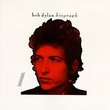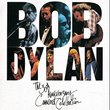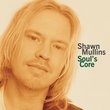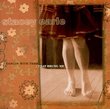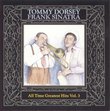| All Artists: Albert Ayler Title: Witches & Devil Members Wishing: 3 Total Copies: 0 Label: 1201 Music Release Date: 6/1/1999 Album Type: Original recording remastered Genres: Jazz, Pop Style: Avant Garde & Free Jazz Number of Discs: 1 SwapaCD Credits: 1 UPCs: 660652900624, 031397101827, 4002587125028, 4002587763626 |
Search - Albert Ayler :: Witches & Devil
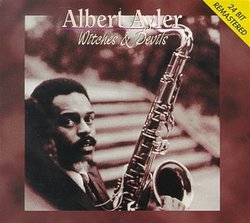 | Albert Ayler Witches & Devil Genres: Jazz, Pop
|
Larger Image |
CD DetailsSimilarly Requested CDs
|
CD ReviewsThe Start of Something Great Michael B. Richman | Portland, Maine USA | 03/04/2001 (5 out of 5 stars) "After a mediocre debut recording, Albert Ayler's sophomore effort "Witches & Devils" finds the iconoclastic tenor saxophonist truly hitting his stride and forging his signature avant-garde meets gospel style. Joining Ayler on this February 24, 1964 session are trumpeter Norman Howard, bassists Henry Grimes and Earle Henderson, and drummer Sunny Murray. The four tunes featured here would all become Ayler staples, and in some cases, variations on these themes would become the building blocks for other Ayler compositions. In three short months, Ayler would blow the roof off the house that jazz built with the classic "Spiritual Unity," but "Witches & Devils" is where the seeds of the new jazz revolution were planted." Ayler's vision finally beings to come forth. Michael Stack | North Chelmsford, MA USA | 09/13/2005 (3 out of 5 stars) "In 1964, Albert Ayler returned to the United States after some time in the Scandanavian countries and found himself in a recording studio in New York City. Ayler recorded two albums that day, "Goin' Home" and "Spirits" (sometimes released as "Witches and Devils")-- the former all traditionals and spirituals, the latter all originals. Both have their merits, and make for interesting listens together. They both benefit from actually having a band that is sympathetic to Ayler's vision. And certainly, these two albums set the stage for the rest of his career. "Witches & Devils" as its referred to on this release, is really something altogether shocking. Ayler, performing exclusively on tenor, is accompanied by trumpeter Norman Howard, bassists Henry Grimes and Earl Henderson, and drummer Sunny Murray. The quartet performs by and large in the forms that Ayler would embrace for the next several years-- spiritual/march infused theme statements composed by Ayler with free associative backgrounds and strong melody statements. Improv is powerful and at times seemingly chaotic. Ayler for his part has embraced his sound fully, with a wide vibrato and aggressive approach, playing in his horn's upper register. Howard emulates this, playing with an equally wide vibrato. The rhythm section (only the cut "Witches and Devils" features both bassists, Henderson plays "Holy Holy" and Grimes "Spirits" and "Saints") is all over the place-- Murray frames everything in his inimitable fashion, playing even further away from a timekeeping role than he did with Cecil Taylor, and both Grimes and Henderson are exploratory underneath the horns. The pieces cover a lot of moods-- "Witches and Devils" is morose, almos funereal, with an extended and unnervingly patient improv led largely by Howard. This spills into the galloping "Spirits", where the horns furiously push out notes in a frantic improv glued together by Sunny Murray's magnificent drumming. Oddly enough, Henderson seems more or less at a loss for what to do with so little space to fill until his own frantic solo comes forth. "Holy Holy" continues this thread, with Ayler stating the theme and consuming about half the piece with his solo. Curiously, at the end of his solo (around the five minute mark), Ayler states part of the theme to his composition "Ghosts" and Howard takes over the soloing voice. The record pretty much fizzles out curiously enough on "Saints", where it seems as if Howard really has no idea how he should be responding to Ayler's playing. Even his own solo seems tentative and incomplete. Still, three of four tracks are quite good, and while the recording isn't essential in Ayler's catalog, it certainly is a good one." Class Heitham 'le meilleur' Black | Sinnipeg | 09/08/2005 (5 out of 5 stars) "This is pure class, Ayler was a true tortured innovator. His music should not be allowed to die: this conjures up the magic of spirituality with the hungry tone of a true artist."
|

 Track Listings (4) - Disc #1
Track Listings (4) - Disc #1